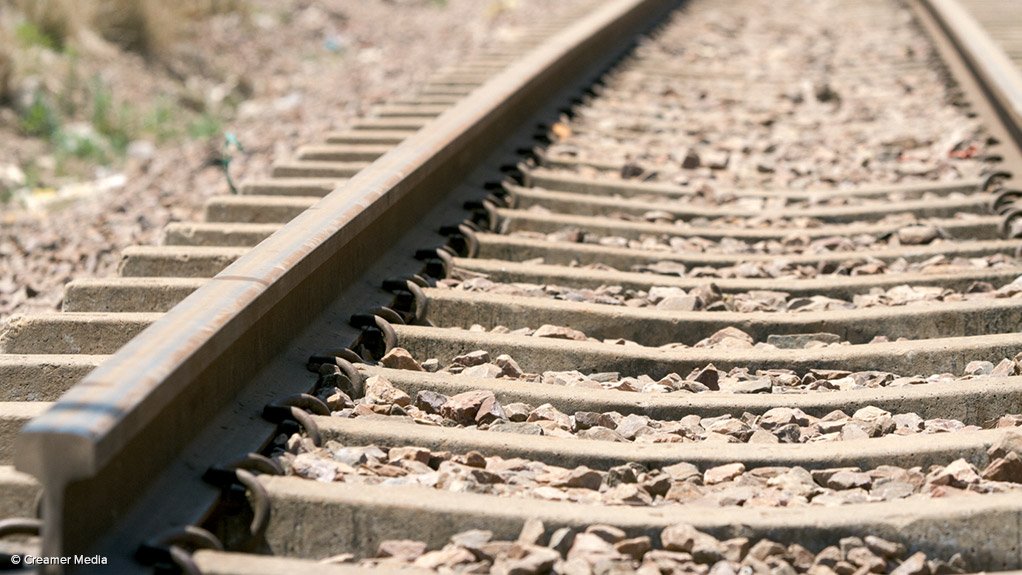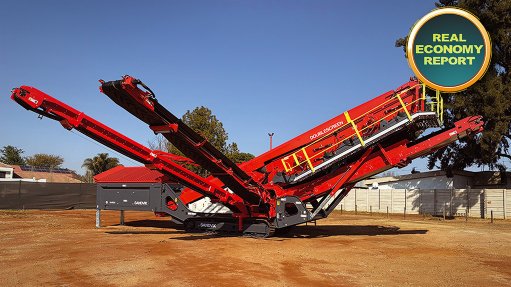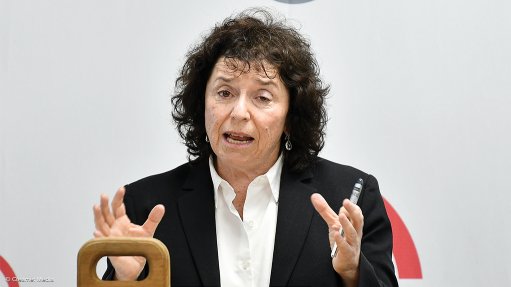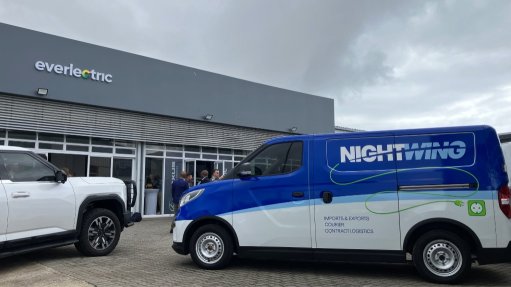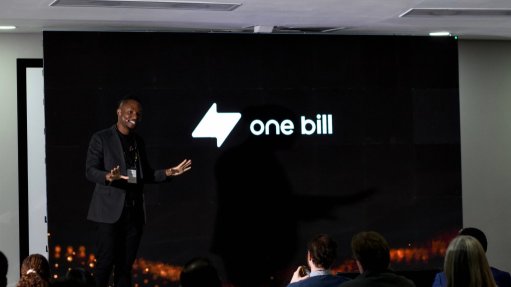PRASA aims to return ten corridors to working order each year
Beleaguered State-owned Passenger Rail Agency of South Africa (PRASA) is aiming to return about ten of its rail corridors to working condition each year.
During a briefing at the agency's headquarters in Johannesburg, on February 1, PRASA board of control (BOC) chairperson Leonard Ramatlakane said this decision was based on affordability.
PRASA has 46 rail corridors spanning South Africa, the bulk of which are not in working condition. About 20 of these have been made operational since the new BOC was appointed in October 2020, and was tasked with turning the ailing agency around after numerous setbacks over the past few years including a lack of security for passengers, vandalism, theft of infrastructure, derailments and operational interruptions, all of which was exacerbated by the impact of Covid-19.
PRASA has also been tangled in a web of fraudulent activity, with about R28-billion in irregular spending reported to the National Treasury last year.
PRASA acting CEO David Mphelo explained that most of the corridors that were operational were functioning as a “limited service”, meaning that trains were only running a fraction of the usual schedule. Moreover, these trains were being diesel-driven at greater cost owing to electrical infrastructure on the lines having been damaged or stolen.
Less than 25% of train set capacity could be used initially after the government relaxed the Covid-19 lockdown regulations, with the capacity per train now at 70%.
PRASA said integrated plans between its various divisions had enabled its subsidiary Metrorail to resume services in a phased approach, based on priority corridors.
Metrorail resumed five of 39 corridors on July 1 last year, with only peak services in the Western Cape, Gauteng and Eastern Cape. In KwaZulu-Natal, meanwhile, it provided peak and off-peak services.
In addition to the national presidential priority projects of Mabopane in Gauteng and the Central line in the Western Cape, another ten corridors nationally had been identified for expeditious recovery this year, of which seven corridors were in Gauteng, two in the Western Cape and one in KwaZulu-Natal.
In September last year, then PRASA CEO Zolani Matthews told Parliament that PRASA was upgrading its network to become a “world-class” system, and that it was consulting with the rail agencies of several European countries to ensure it was meeting global benchmarks in terms of quality, technology and security.
Matthews has since been removed as CEO following the discovery that he had misrepresented his British citizenship. Ramatlakane told Engineering News that PRASA and Matthews were in mediation and arbitration regarding his removal from office, but that he expected the matter to be resolved soon.
In January, PRASA announced that it had refurbishments planned at 39 commuter train stations around South Africa, all of which were expected to be implemented this year.
These upgrades would be reinforced by a security model that relied on “tight collaboration with law enforcement”, Transport Minister Fikile Mbalula said on social media platform Twitter in January.
Ramatlakane told media, however, that this project would not be met. He explained that the reason for this was the decision was made to regionalise rather than nationalise such projects, which would cause delays in the rollout owing to the need to ensure that local tender procedures were followed. This would be challenging, however, because PRASA lacked the necessary skills to deal with such matters on a regional level.
In a statement on February 1, PRASA revised the number of stations to be reconfigured, expanded and modernised to 27. It said the total programme cost was estimated at R3.75-billion.
It said the programme was under review and assessment in terms of scope and specification.
Three stations – Greenview in Pretoria, Phillipi in Cape Town and Oakmoor in Kempton Park – would be prioritised for implementation and are expected to be completed by the end of May next year.
No expenditures had been incurred or committed, to date, from the R43-million allocated in the 2021/22 financial year.
PRASA has faced significant security challenges since private security company contracts were terminated without any replacement plan in place in November 2019. This resulted in a sudden deficit of thousands of security guards nationally.
As a result, PRASA's infrastructure suffered from widespread looting. The State-owned entity has since been tasked with repairing and replacing significant portions of its infrastructure, including substations, signalling cables and associated equipment, telecommunications lines and components such as ballasts, sleepers and rails across all its priority corridors.
“PRASA is constantly under threat from a security perspective, with the pillaging and destruction of the rail infrastructure continuing largely unabated. Not only are trains continuously being vandalised, the rail network infrastructure has also been under consistent attack, stripped of copper cables, railway tracks, signalling equipment and overhead electricity cables, and its facilities across the country continue to be vandalised,” PRASA said in a statement.
It explained that inadequate physical access and the lack of adequate security measures to restrict access to passengers with valid tickets resulted in low passenger numbers being recorded over the past year.
This contributed to declining fare revenue amounts and poor financial performance, which has allowed for the vandalism to continue.
“There needs to be a holistic security strategy to ensure the assets of PRASA are secure, commuters are safe and fare revenue evasion is combatted,” PRASA said.
In response to rampant vandalism and theft, a revised security strategy approved in August last year will be integrating technology with human deployment, Ramatlakane said.
He said 3 100 security staff had been recruited by end of last year, and that fencing and walling had been elevated as part of the security strategy to protect the rail system, as well as employees and security staff, from criminal elements.
Comments
Press Office
Announcements
What's On
Subscribe to improve your user experience...
Option 1 (equivalent of R125 a month):
Receive a weekly copy of Creamer Media's Engineering News & Mining Weekly magazine
(print copy for those in South Africa and e-magazine for those outside of South Africa)
Receive daily email newsletters
Access to full search results
Access archive of magazine back copies
Access to Projects in Progress
Access to ONE Research Report of your choice in PDF format
Option 2 (equivalent of R375 a month):
All benefits from Option 1
PLUS
Access to Creamer Media's Research Channel Africa for ALL Research Reports, in PDF format, on various industrial and mining sectors
including Electricity; Water; Energy Transition; Hydrogen; Roads, Rail and Ports; Coal; Gold; Platinum; Battery Metals; etc.
Already a subscriber?
Forgotten your password?
Receive weekly copy of Creamer Media's Engineering News & Mining Weekly magazine (print copy for those in South Africa and e-magazine for those outside of South Africa)
➕
Recieve daily email newsletters
➕
Access to full search results
➕
Access archive of magazine back copies
➕
Access to Projects in Progress
➕
Access to ONE Research Report of your choice in PDF format
RESEARCH CHANNEL AFRICA
R4500 (equivalent of R375 a month)
SUBSCRIBEAll benefits from Option 1
➕
Access to Creamer Media's Research Channel Africa for ALL Research Reports on various industrial and mining sectors, in PDF format, including on:
Electricity
➕
Water
➕
Energy Transition
➕
Hydrogen
➕
Roads, Rail and Ports
➕
Coal
➕
Gold
➕
Platinum
➕
Battery Metals
➕
etc.
Receive all benefits from Option 1 or Option 2 delivered to numerous people at your company
➕
Multiple User names and Passwords for simultaneous log-ins
➕
Intranet integration access to all in your organisation



